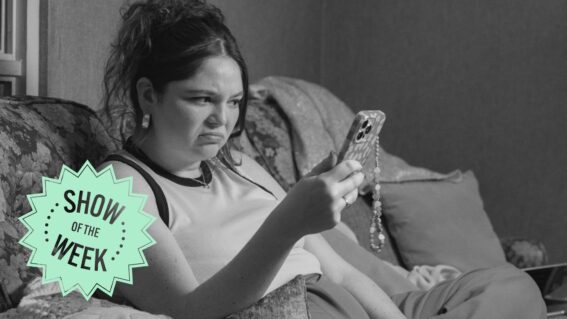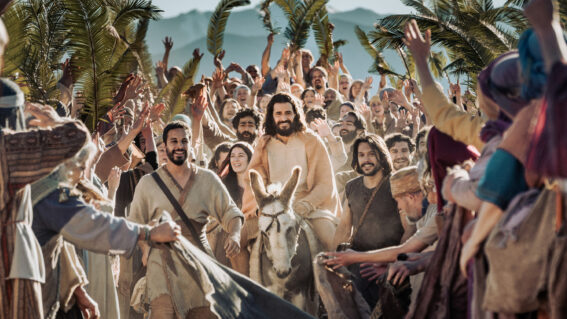Paul Verhoeven tells us about historical drama (and lesbian nun pic) Benedetta
“It’s not so far away, strangely enough, from Total Recall”
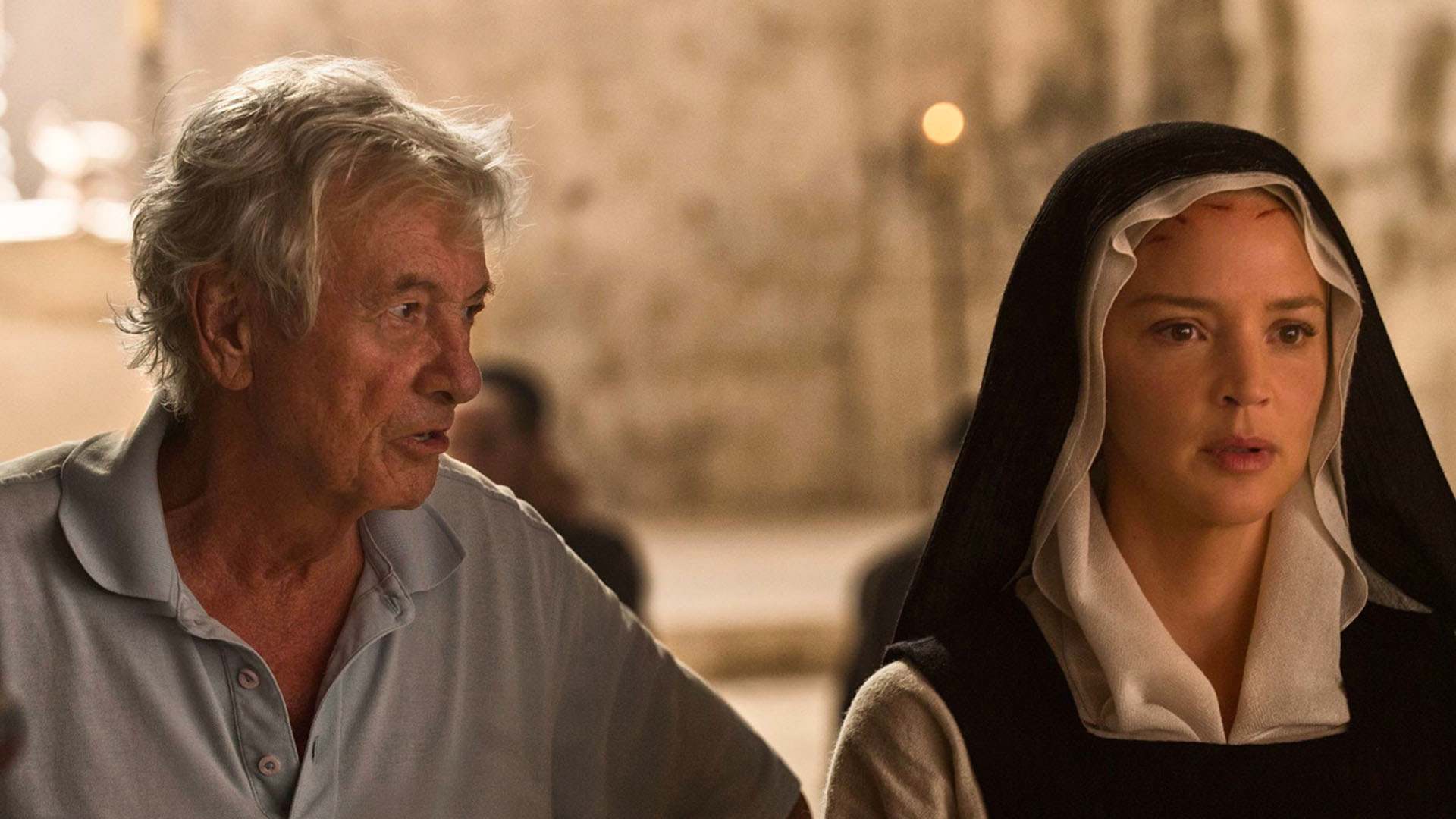
If anyone was going to make a lesbian nun movie, it would have to be Paul Verhoeven. The provocateur director chats with Steve Newall about Benedetta.
Paul Verhoeven has long relished challenging audiences—his potent blend of sex, violence and satire evident in everything from his Dutch films of the 60s, 70s and 80s to his stunning and often subversive Hollywood pics (RoboCop, Total Recall and Starship Troopers in particular). Having not made a traditional studio film since 2006’s Black Book, Verhoeven returned with a vengeance in 2016 with the complex and confronting Elle, starring Isabelle Huppert—and now his historical religious drama Benedetta releases in cinemas.
Verhoeven being Verhoeven, it’s not just one for the academics. Rather, it charts the ascent of a 17th century nun (Virginie Efira) in Pescia, Italy who had visions of Jesus—visions that see her fêted by some, doubted by others and, not to be overlooked, also encouraged Benedetta into a lesbian relationship that the church orthodoxy would consider blasphemous.
Also starring Daphne Patakia, Charlotte Rampling and Lambert Wilson (The Matrix series’ Merovingian), Benedetta premiered at the 2021 Cannes Film Festival in competition for the Palme d’Or. I joined its 83-year-old director on Zoom to find out more.
THIS INTERVIEW HAS BEEN EDITED FOR LENGTH AND CLARITY
Love in the time of… plague
Set during a time that plague was inspiring fear in Europe, I asked Verhoeven if the current pandemic reflected the themes of his film—in which we see religious figures take advantage of fear and crisis to suit their own ends.
“Of course, the film was shot in 2018, wasn’t it?” he says. “So, I mean, there was no COVID. When we were shooting the movie, we were just basing ourselves on the plague in the medieval times. So there is no correlation. Call it coincidence, that after shooting the movie, we found out that there was a corona crisis.”
“When we were adapting the book of Judy Brown, Immodest Acts, there was, of course, a mention of the plague at that time,” Verhoeven continues. “Notably, because exactly in the time that our movie is situated, there was a red comet all over Europe, you would even see it in China. And that was by some people interpreted as being an announcement of terrible things that would happen and included more plague and this and that.”
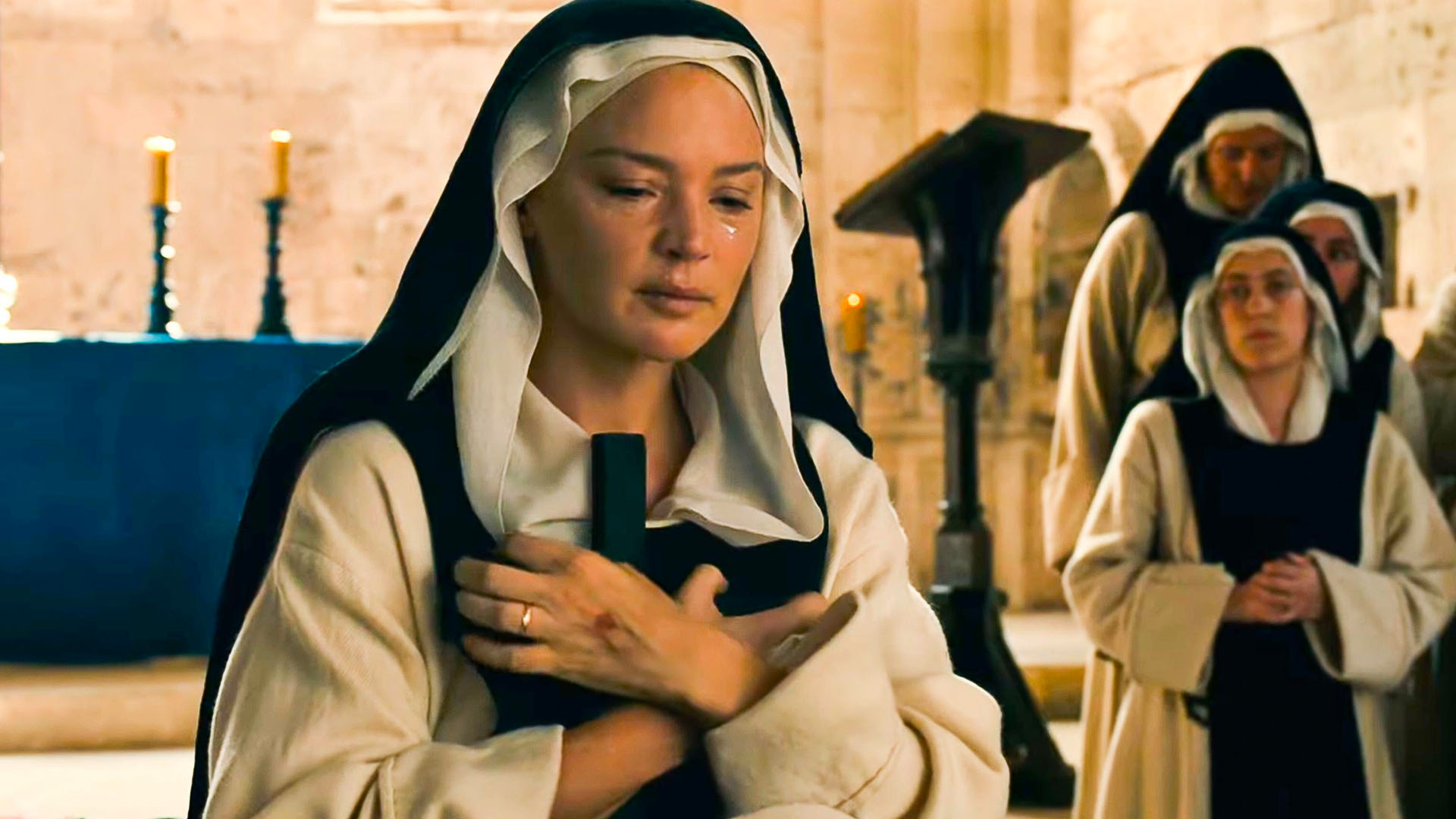
“But Benedetta makes clear in reality that it was not a sign that we were doomed. It was a sign that Jesus was with us. And that Jesus would prevent the plague coming to Pescia. That’s all historical, they say, these things. The scene is there, basically, where the provost points to the comet and says: ‘This is telling us that a plague will come to Pescia and we all die,’ and this and that. And then Benedetta walks to the center of the square and says: ‘No. That’s not true. It is a sign that Jesus will protect Pescia.’ And in fact, strangely enough, although around Pescia there was all plague, for 10 years, the plague did not come to Pescia. Yeah, it’s more historical than you think. But it is certainly not influenced in any way by COVID at all.”
Not that there aren’t echoes, Verhoeven acknowledges: “Interestingly enough, a bit by coincidence of course, but when Benedetta had said to the people around her that the city will be, let’s say, saved or Jesus will protect it, then she walks up to the soldiers and say, ‘Close the gates all over the city.’ So she says it’s Jesus [protecting the city], but on the other hand, in all ambiguity, she says, ‘Close the gates,’ and she basically orders a lockdown. That’s what she does. It’s a lockdown, basically.”
“And then you see that later because the gates are not opening and all the food goes up and down the walls. People bring it to the walls and it’s picked up in little packages and it goes up and through the wall. The people of Pescia are keeping the plague outside. Nowadays, basically, I think you can make an argument that the film is based on now but it is not. It’s coincidence.”
Verhoeven’s take on Christianity and Jesus himself
I’ve been long interested in Verhoeven’s own interest and knowledge of religion. He was a member of scholarly organisation The Jesus Seminar and published the non-fiction book Jesus of Nazareth (stemming in part from his research for an unmade film titled Jesus: The Man). I asked him how long he’d wanted to make a film with religion as one of the primary themes of the film.
“Well, first of all, she is a nun,” he says. “And basically, Jesus is her bridegroom, isn’t he? So, I mean, Judy Brown’s book, Immodest Acts, is a portrayal of a nun—but not a quote-unquote, ‘normal’ nun. No. A lesbian. Being a nun in a monastery, basically, it means, of course, that you’re married to Jesus, aren’t you, as a nun? And so, to treat religion in the movie would be, let’s say, imperative. I mean, you could not make a movie about a nun without the religion.”
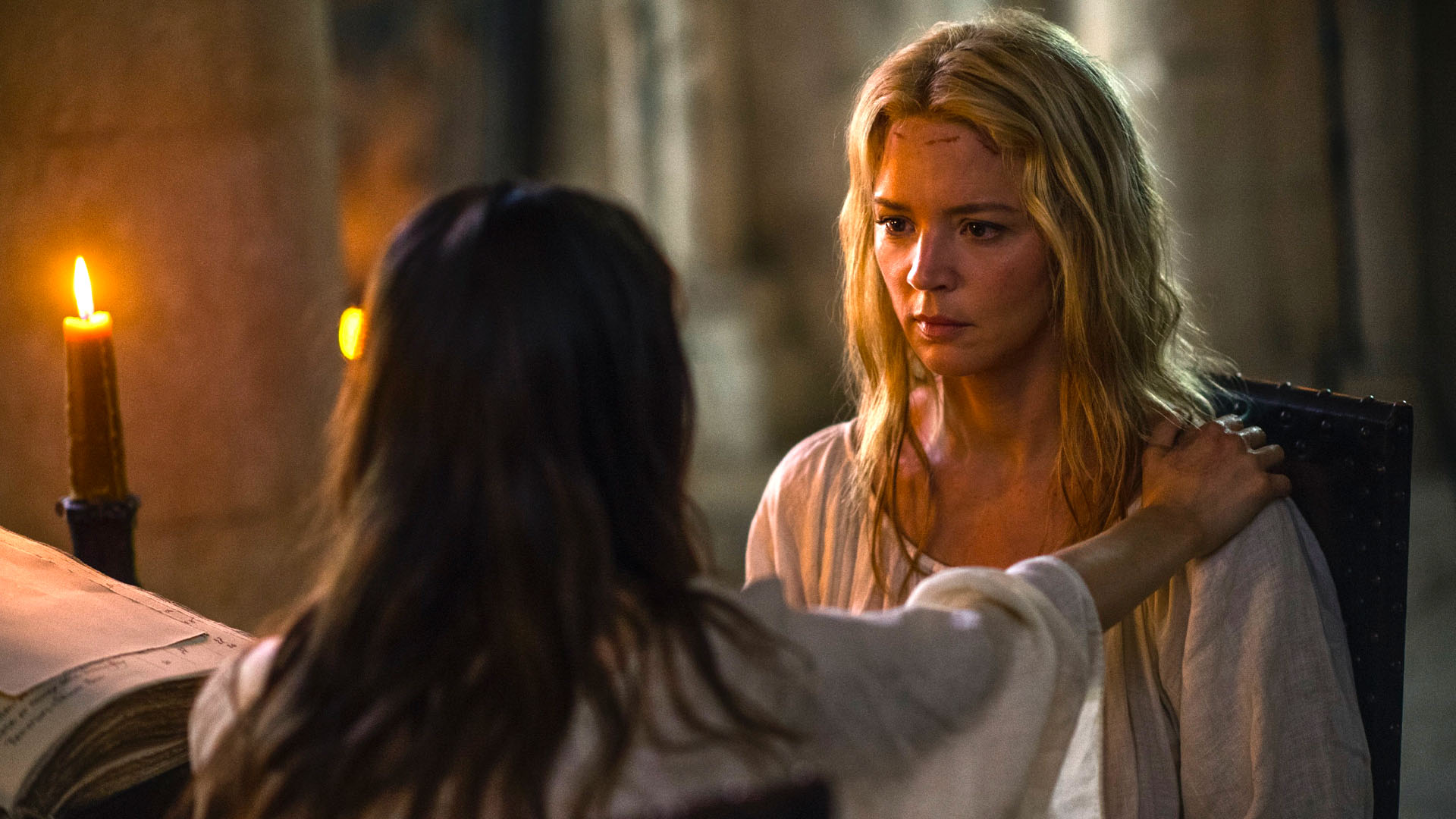
“Except,” Verhoeven continues, “the religion that I and the scriptwriters portrayed, is that Benedetta has what I would call a personal Jesus. It’s her Jesus. For her, it’s probably a reality—I really believe that she had these visions. But for us, it is more that the Jesus that she married, in the visions, develops. In the beginning, of course, Jesus says to her, ‘Stay with me. Don’t go.’ And then Bartolomea puts her finger in her vagina from behind—and Benedetta sees snakes, a message, the message is, you shouldn’t go there. These snakes are going to kill you or whatever. That is Jesus saying that.”
“And then she says, ‘Lord, I will follow you. I won’t do this horrible thing. These snakes are too dangerous. I should not do that.’ Meaning, I will not go have sex with Bartolomea. But later, of course, she finds out that this Jesus is not really a really benign Jesus. He turns out to be a villain based on her memories, basically, of her childhood when she was in the first scene of the movie where she is confronted with these missionaries. It’s not for nothing that the bad guy, the bad Jesus, the false Jesus, is saying, ‘I’m saving you,’ but he turns out to be, let’s say, also a criminal. And that time, basically, he’s trying to rape her.”
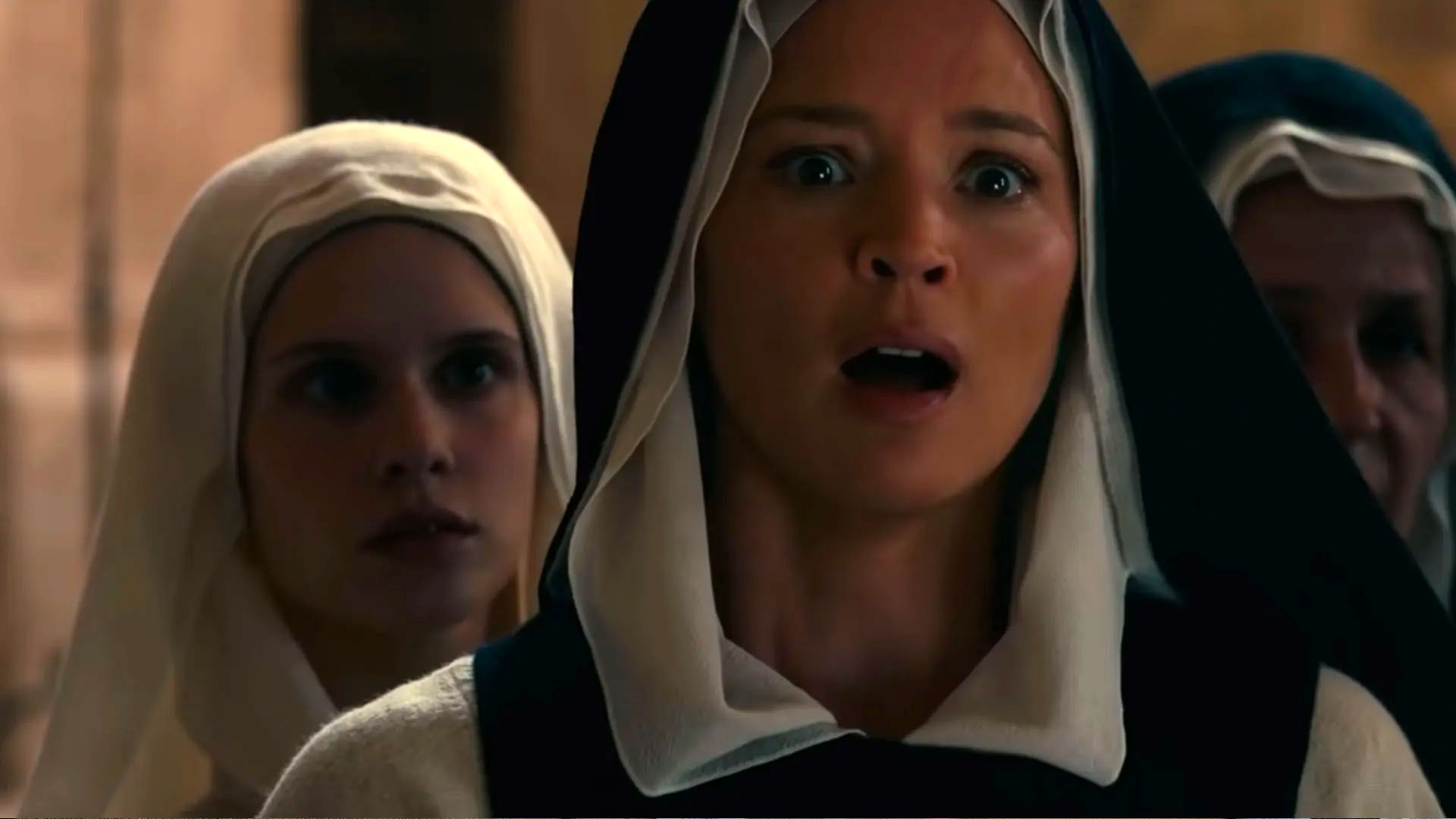
“Benedetta realises, basically, you’re false, so I don’t have to follow that. So Jesus is starting to change, isn’t he, in her brain. And then we see Jesus again, and then he’s on the cross, basically naked without any genitals. And then, Jesus says to her, ‘Take your clothes off. Take your clothes off. With me, there is no shame.’ That’s after a scene where Bartolomea tries to look at Benedetta undressing and then Benedetta says, ‘Well, you cannot see that because we cannot be naked.’ ‘No,’ Jesus says, ‘you can be naked. And you can have sex with Bartolomea.'”
“So that’s, for me, the reality of her relations, feelings, or whatever. I mean, she might not have been aware of that. Perhaps she did it when she was in some, let’s say, visionary state; perhaps she used pieces of glass to make, let’s say, wounds on her head. Perhaps she did, but perhaps she was just dreaming and she doesn’t remember that she did it. So there is a possibility that it was not all calculation. I think there was probably elements in her thinking that she wasn’t aware of that she manipulated to reality.”
How this all ties in with 1990 action sci-fi blockbuster Total Recall
While I had plenty to ask about Benedetta, getting the chance to talk to Verhoeven meant that I’d be speaking to the man behind some of my favourite movies ever. Little did I know this talk of Benedetta manipulating reality would soon see Verhoeven bring up one of the biggest successes for both himself and Arnold Schwarzenegger.
“She’s asked: ‘Am I going to heaven or to hell?'” Verhoeven says of one interaction with Benedetta late in the film. “She says: ‘You’re going to paradise.’ And then he says: ‘You’re lying to the end.’ But the movie refuses to say it is this or that. It’s not so far away, strangely enough, from Total Recall. Of course, that’s Arnold, completely a different movie, but still, at the end of the movie, you don’t know if he’s basically lobotomised. The movie goes to white, not to black—it’s not a fade-out. It just fades to white. So is he lobotomised or is he really the hero of Mars that has given the population an atmosphere? We don’t know. We don’t know.”
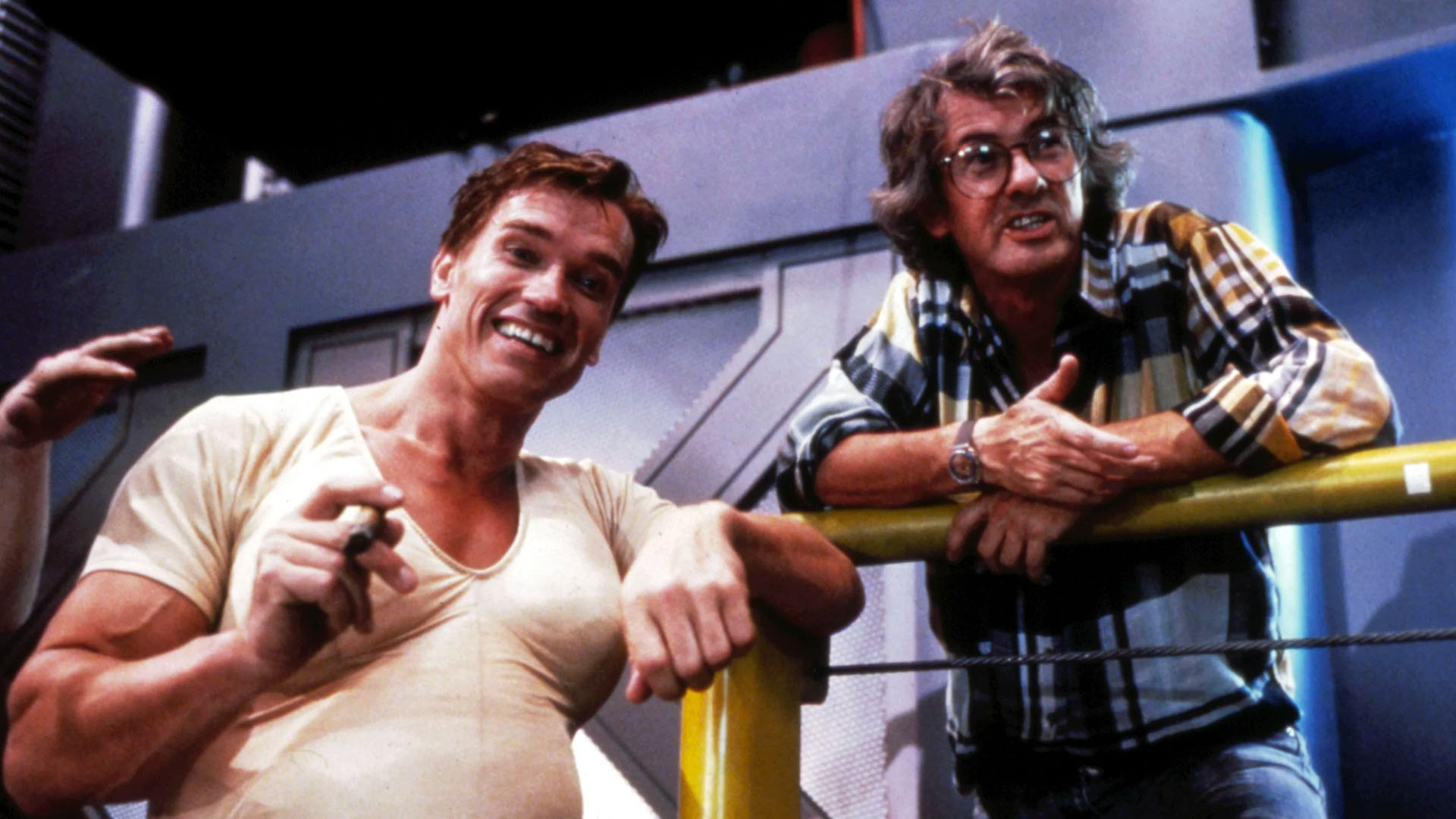
I’ve been asking these questions for 30 years now, I reply. “Yeah, yeah. Sure,” he says .”But when we did Total Recall, one of the very interesting things for me was to do a narrative that you could interpret two ways. It is a dream until the very end and he is lobotomised, or he is really a secret agent that becomes a good guy. A bad guy becomes a good guy, everything is wonderful at the end and they kiss. The music of Jerry Goldsmith really brings in this strange theme that it has to do with, basically, dreaming and whatever. At the end of the movie when they kiss, that’s the music—saying perhaps he’s lobotomised. And I liked that very much.”
“I felt that Benedetta, in some completely different way should be something like that,” Verhoeven continues. “That I would not tell the people, ‘She is manipulating. She did it herself. Everything that she says is manipulation.’ I felt that was boring. I thought it was much more interesting to give the audience a possibility here to choose sides when they come out of the movie.”
Verhoeven fell out with a long-time writing partner
It’s easy to be on the side of the people that are skeptical of her, I note to Verhoeven. The film could have made them two-dimensional villains at times, but in feeling like she’s staging events or manipulating them, their reactions to Benedetta are credible.
“Well, if you look how the movie developed from the book, in the beginning, I worked with my Dutch scriptwriter, Gerard Soeteman,” he explains. “And he read that book as a story about a woman that is gathering power in a male society. He compared it even to dictators like Hitler or Mussolini—Benedetta fighting to get power. And that the movie was about getting power.”
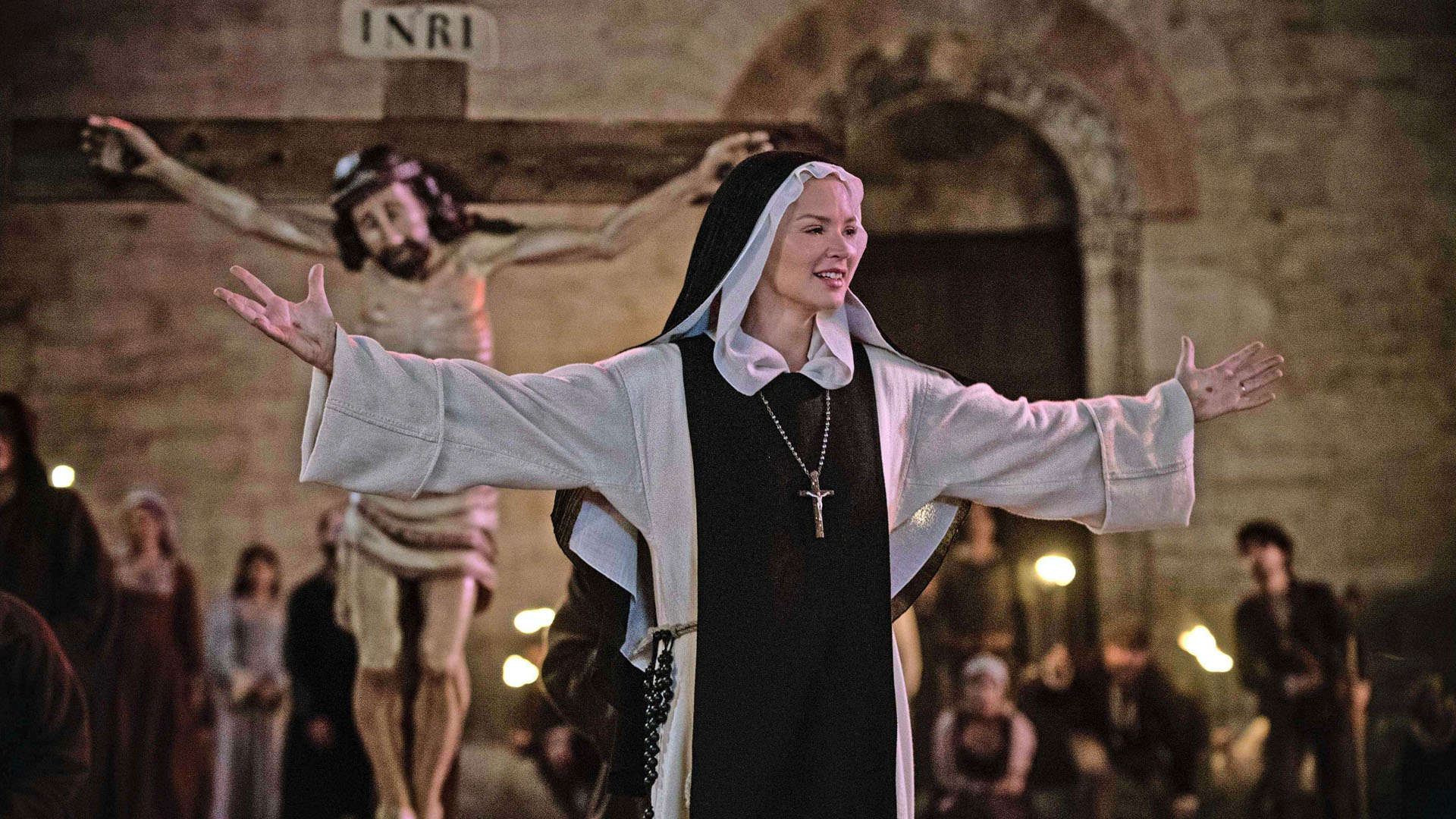
“And I felt that that the movie was, yes, about getting power also. But the power was used to have a lesbian relationship. And basically, that conflict between Gerard Soeteman and me, basically, broke off our relationship on that. I finished the screenplay with David Birke who had written Elle. Gerard read the book in a completely different way—I didn’t realise that and neither did he. He had read the book as a metaphor for tyranny or female conquest or female power or something like that in a male society.”
“Gerard and I were both basically against each other because of reading the book in a different way. That happened, and hasn’t happened before. I worked with Gerard already since, let’s say, 1968. He had done all my Dutch movies, including Black Book. And now, we came to this strange situation that we were disagreeing. I wanted to make a movie about a lesbian nun, and he wanted to make a movie about a female dictator. Something like that. So yeah, that went wrong.”

Comedy and laughing at audacity
In Deadline’s review of Benedetta, Todd McCarthy mentions the audience at Cannes laughing at a particular scene where a sex toy is hidden away. “Laughing about what?” asks Verhoeven when I mention this to him. Laughing at the the sex toy, I tell him. And also that the reviewer makes the comment, “They’re not laughing at the movie, they’re laughing with the movie.” They’re laughing at Verhoeven’s audacity and what you’re showing, I explain. “That’s true,” he offers.
I like to have that same reaction, and I do to many of your films, I tell him. But how does that match up with his intention? Does he like people laughing with his choices?
“Yeah, sure,” he says. “I mean, I was aware that it was partially funny. It was meant to be funny. Especially when working with a dildo or whatever, that’s especially funny of course when she says, ‘I have a present for you,’ and then she turns it around and then it’s a dildo. But then, immediately after that, the daughter of the Abbess commits suicide.”
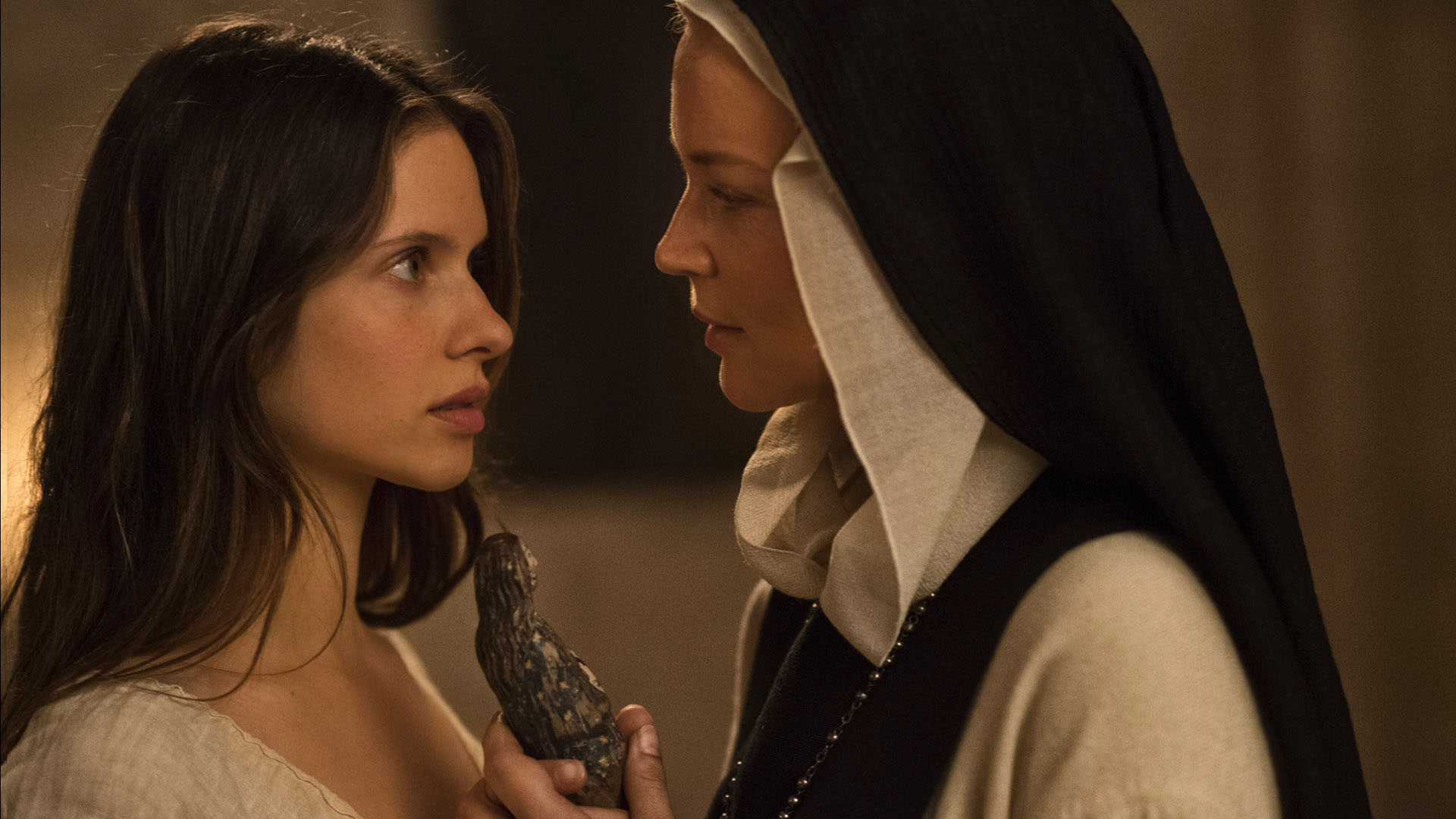
“I mean, it is funny for a moment and strange, and then it goes into a completely different thing. But there is a certain funniness, basically, meant to be. And perhaps it’s unusual to combine suicide and, let’s say, the plague together with comedy. Some people have a problem with that.”
It’s not a surprise from you, I suggest to him. It’s a pleasure to talk to you today, I say. I’ve loved your films for many, many years, so I really appreciate this time—it’s really special.
“It was fun”, he responds. “It is a bit of a weird movie, of course. Yeah. It’s not completely normal.” Which is probably as it should be—Paul Verhoeven’s lesbian nun movie should be a bit of a weird movie, should it not?
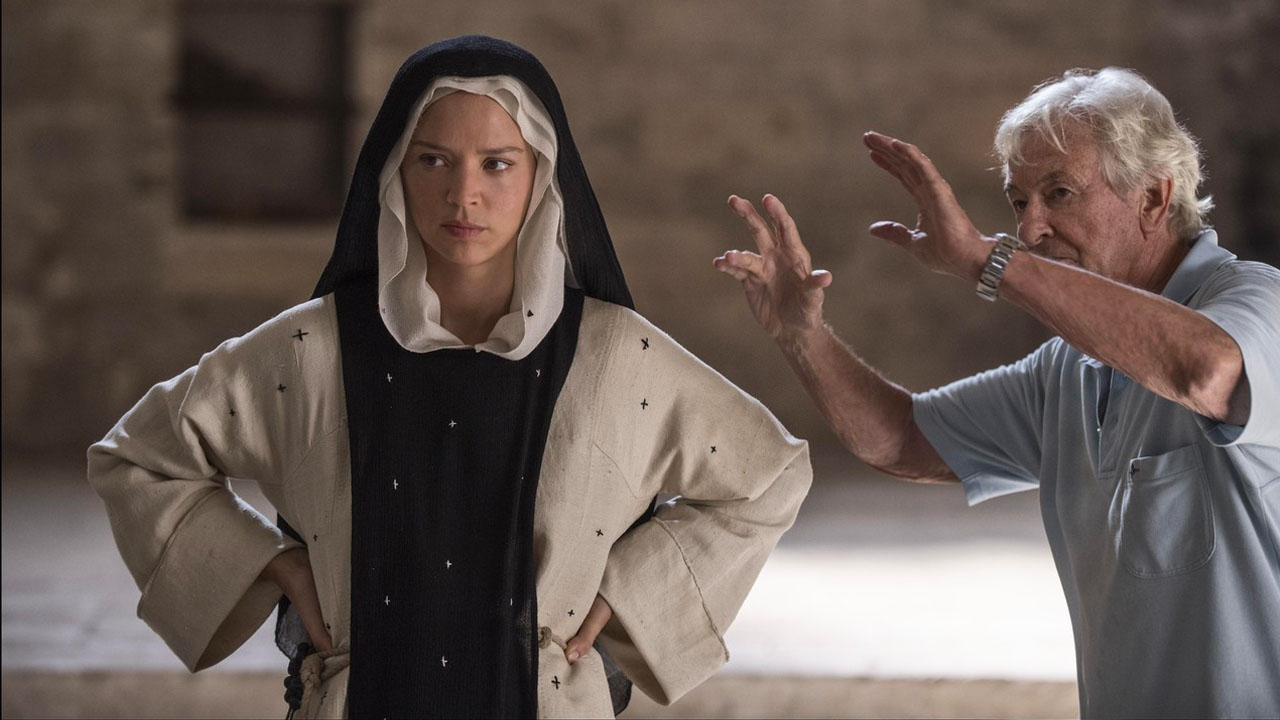
Just before I hang up, the 83-year-old can’t resist mentioning his next project. “I’m working on a thriller in Washington,” he tells me. “It’s called Young Sinner with Ed Neumeier, the writer of RoboCop and Starship Troopers, we’re working on that. We go back to more personal films, then you can go to a big audience film, as you can see.”
I put it to Verhoeven that Ed has already said publicly that there will be some sex in this film, “of course”. “Okay,” Verhoeven says. “Good.”








